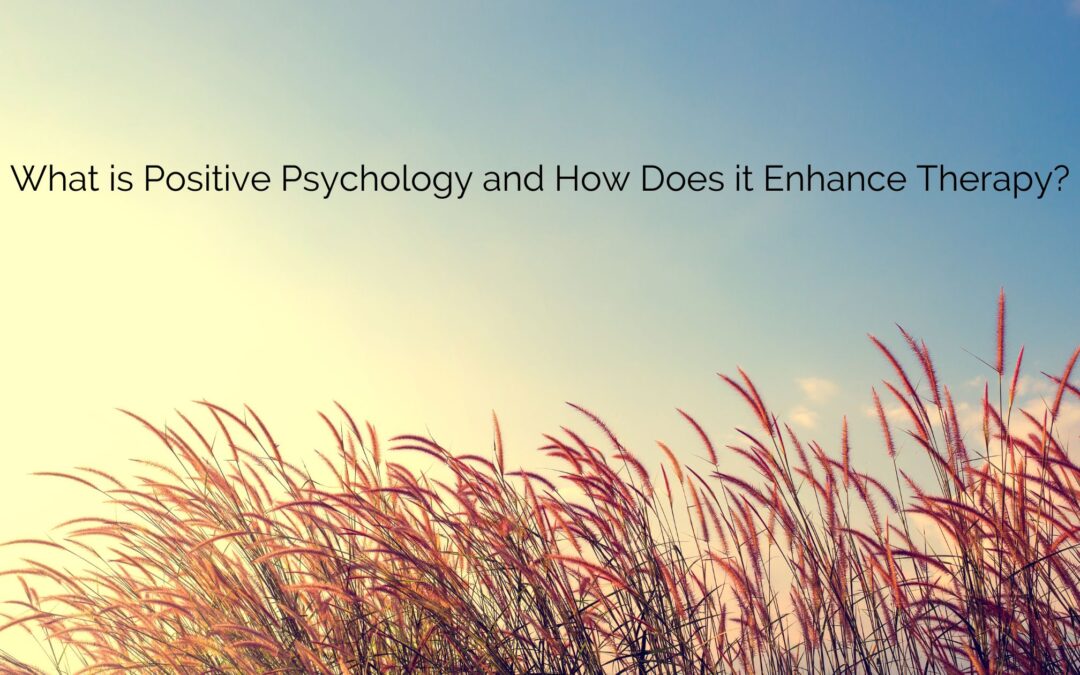Have you ever had the experience of going to therapy only to leave feeling like you learned something else that’s “wrong” with you?

Positive Psychology was created by Dr. Martin Seligman of the University of Pennsylvania. After his tenure as president of the American Psychological Association, Dr. Seligman recognized that for humans to flourish truly, they needed a different set of knowledge and skills than traditional psychological treatments. Contrary to what the name might suggest, Positive Psychology is not about being positive all the time, nor is it necessarily about finding the silver lining in every difficult situation. Instead, Positive Psychology is a strengths-based approach geared towards providing people with the skills they need to thrive, not just survive.
In Positive Psychology, we teach skills to cultivate positive emotions instead of just learning to manage negative ones. We focus on developing positive and healthy relationships, infusing a sense of meaning and purpose into your life, and helping you find that sweet spot of feeling accomplished but not becoming enslaved by the pursuit of consistent achievement. This doesn’t mean that we ignore or gloss over the complex or even traumatic experiences in life, but rather that we see a person as a whole, not broken, capable of living the life they want to live and provide them with a different set of skills to do so.
As a skills-based therapist, I love incorporating Positive Psychology techniques into my work with clients struggling with depression, anxiety, eating disorders, body image, trauma, and self-esteem. This approach allows them to learn more about themselves from a perspective they haven’t previously considered. It also adds a new layer of self-empowerment when they recognize the power they already have that no one ever taught them how to use.
So, what does Positive Psychology look like in sessions?
While every session is unique and individualized based on your specific needs, here are some examples of the tools we may use:
- Utilize the VIA character strengths inventory to identify your innate strengths
- Examine which strengths are under or over-developed and how those affect your mental health
- Develop a toolkit of skills designed mainly to help you feel more positive emotions
- Identify areas of “flow” in your life and strategies to cultivate more of it
- Comple an inventory of your relationships and identify ways to make your relationships stronger and healthier
- Engage in existential work to hone in on what gives your life meaning
- Discuss strategies to improve your overall wellbeing

The short answer is everyone!
Positive Psychology can benefit those coming to therapy because they are looking to upgrade their life and relationships, as well as those struggling with a specific mental health concern. No matter where you are in your healing journey, Positive Psychology tools can provide a new lens through which to see yourself and unique strategies that complement the other skills we use in therapy.
Are you interested in learning more about how Positive Psychology can support you in your healing? Give us a call at 720-675-7123 to schedule your free 30-minute consultation with me. I’m looking forward to helping you learn how to use your innate strengths and new strategies to help you live the life you want to live.
Photo Credits:
Photo by Jasmin Osman on Unsplash
Photo by Rudy Issa on Unsplash


